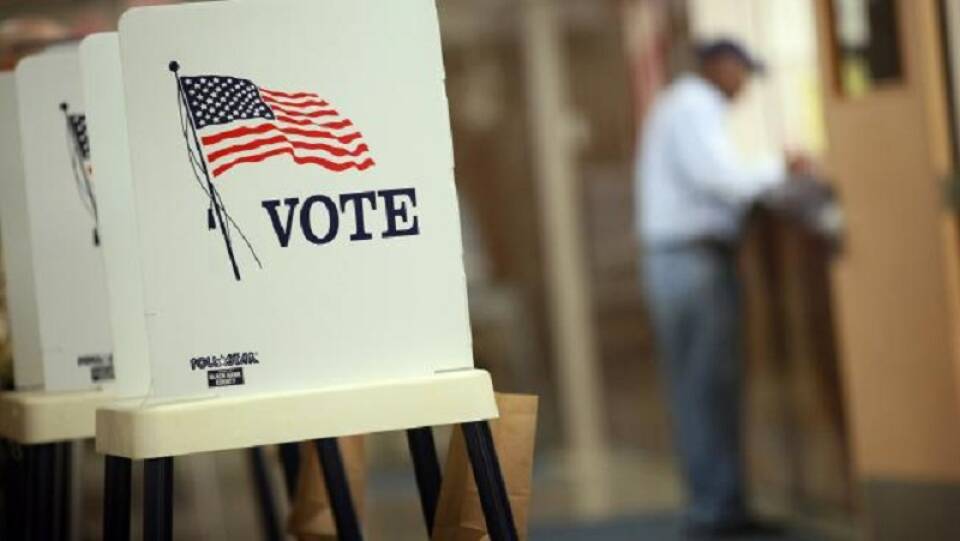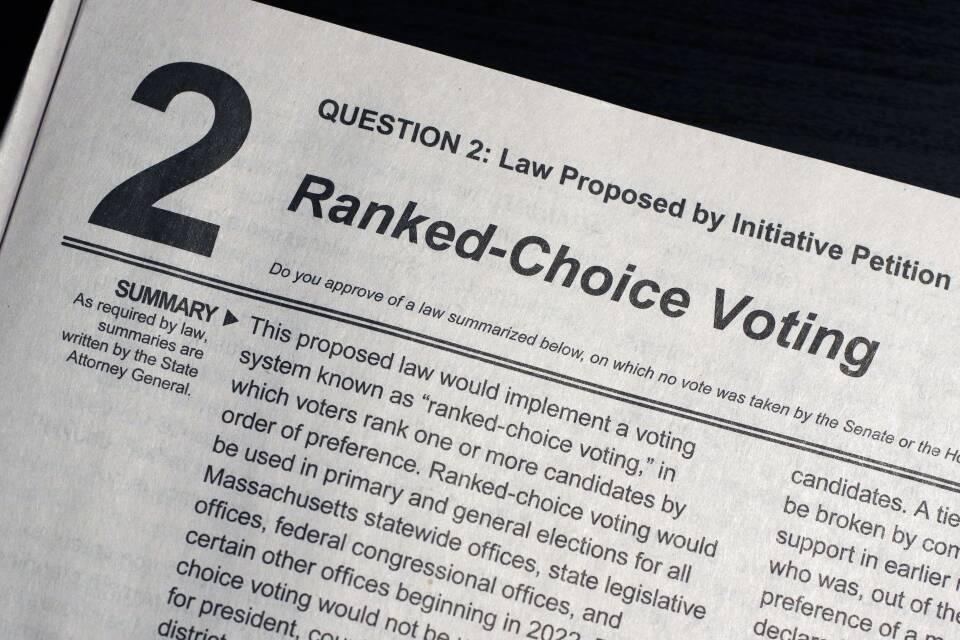Bostonians could get ranked choice voting in their local elections, if a local coalition can garner enough support.
After Massachusetts voters rejected a 2020 ballot initiative for ranked choice voting in most state and federal elections, a new coalition is zeroing in on changing elections at the municipal level.
“In Boston ... we saw a significant amount of support for ranked choice voting in 2020 and see it as a great opportunity — this go-round — to bring about ranked choice voting for the residents here in the city,” NAACP President Tanisha Sullivan told Boston Public Radio on Thursday.
Over 60% of Boston residents voted in favor of ranked choice voting on the 2020 ballot question, while statewide more than half opposed. Sullivan is co-chairing a new coalition, launched last summer, called Ranked Choice Boston to build support for ranked choice voting in city elections.
Ranked choice voting helps communities “elect the person who is able to build consensus so that hopefully they can end up getting the job done,” Sullivan said. This is regardless of ideological position, she said.
She also responded to a common criticism: that ranked choice voting is too confusing for voters.
“We rank choices all the time,” Sullivan said.
Rahsaan Hall, another coalition co-chair and the president of the Urban League of Eastern Massachusetts, compared ranked choice voting to picking a favorite empanada. During a recent exercise with a group in East Boston, he asked attendees to vote for their favorite empanadas, ranging from beef, chicken, cheese and shrimp.
Beef empanadas were Hall’s first choice, and it was the flavor that ultimately won — but not because it received more than 50% of the votes in the first round. Rather, it was because many people ranked beef empanadas as their second favorite. Those votes end up getting counted towards the overall winner after the empanada that receives the fewest first-choice votes is eliminated and, on those ballots, votes are tabulated from the second choice.
“If there are candidates that we really like, but they might not be the most quote-unquote electable candidate, we can still vote for them because we believe in them,” Hall said on Boston Public Radio. “And in the event that they don’t make it past that threshold, our vote can then go to the next candidate that we would be in support of.”
If Boston City Council seats or the mayor have the majority of the community’s support through ranked choice voting, “that should make us all feel better about how our democracy is working,” Sullivan said.
Ranked Choice Boston has already received support from some Boston City Councilors — and they will also need support from Mayor Michelle Wu, Sullivan said.
If the city’s government ultimately opted to change the voting system, it would need permission from the state’s Legislature, possibly by a home-rule petition. The coalition will also be joining other municipalities beyond Boston that are petitioning the state Legislature for the ability to opt into ranked choice voting if they so choose.
The coalition is starting at the municipal level before moving on to the state level again.
“I think that's one way that you get a groundswell of support when people can actually do it and see that it actually works,” Hall said. “Ideally, we would love to have it at the federal level.”







